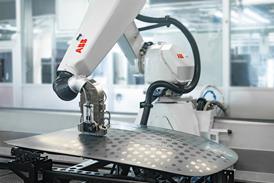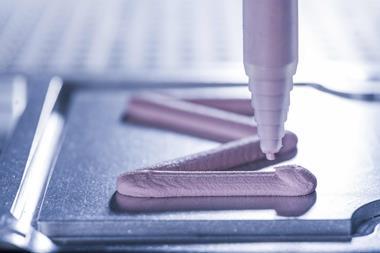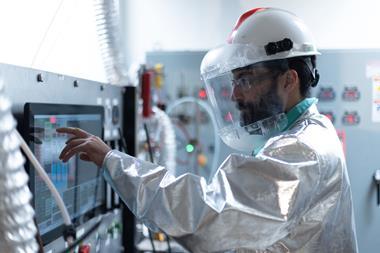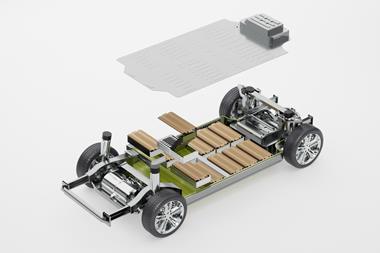 Germany – In partnership with a number of other organisations, the press manufacturer is exploring the economical series production of components made from fibre-reinforced plastics. The project will address the high manufacturing costs which currently limit the use of composite parts.
Germany – In partnership with a number of other organisations, the press manufacturer is exploring the economical series production of components made from fibre-reinforced plastics. The project will address the high manufacturing costs which currently limit the use of composite parts.
According to Schuler, iComposite 4.0 will achieve cost savings through the use of near net shape, additive manufacturing processes and a networked production system based on the Internet of Things (IoT). This will avoid conventional levels of waste, such as a 50% cut-off rate for semi-finished products.
In this method, the basic structure of the component will be formed by additive fibre spraying. The fibre strands will then be applied with high precision and in accordance with the load profile, so as to absorb peak loads in the part and compensate for variations in the spraying process. During the subsequent resin injection and shaping in the press, the deflection of the die will be used to achieve the specified wall thicknesses of the component.
During the remaining process steps, regulating system intelligence will compensate for any fluctuations in the properties of the part and therefore minimise scrap. The production history of the component will be stored on an integrated radio frequency identification chip; the uninterrupted quality monitoring and linking of individual systems along the production line, in accordance with IoT, is aimed at achieving a zero scrap rate.
The iComposite 4.0 project is sponsored by the German Federal Ministry of Education and Research (BMBF). Schuler’s partners are: the Aachen Center for Integrative Lightweight Production at RWTH Aachen; Apodius; Broetje Automation Composites; Frimo Sontra; ID-Systec; the Institute of Plastics Processing in Industry and the Skilled Crafts at RWTH Aachen; Siemens; and Toho Tenax Europe.






































